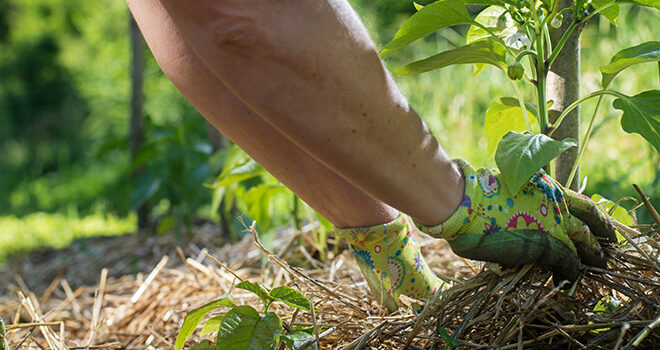The Louis Bonduelle Foundation aims to raise awareness among different audiences regarding sustainable and responsible behaviour, such as combatting food waste, and promoting resilient agricultural practices and eco-friendly diets.
Global food production is a threat to climate stability and the resilience of ecosystems, i.e. their ability to resist the pressures of climate change. It is one of the main causes of resource degradation and the erosion of nature’s boundaries. But there is hope in an approach that is increasingly supported by the scientific community: improving the means of food production could well meet the challenges of the 21st century…
For many years, the Louis Bonduelle Foundation has encouraged sustainable and respectful environmental behaviour through actions on the ground, research support and local projects.
The many facets of sustainable agriculture
When talking about sustainable food production practices, permaculture readily comes to mind. It allows the establishment and development of resilient and sustainable systems capable of meeting people’s needs, while imitating nature’s strategies. As a result of permaculture, the soil stores carbon from the increased amount of organic material, and biodiversity improves.
Discover 4 tips to start a permaculture garden
thanks to the Louis Bonduelle Foundation’s infographic!
Other practices can have a positive impact on the environment. One particular example, urban farming, makes cities more sustainable. It develops shorter supply circuits, supports biodiversity in urban ecosystems, and improves the quality of city air. For these reasons, the Louis Bonduelle Foundation has made this practice the focus of its request for proposals “Food culture: change and perspective”, and its 2018 Conference, “City & Agriculture: Reconciliation or Disassociation”.
Experience the 2018 Conference through our detailed coverage of the event!
Reducing the environmental footprint through diet
The Louis Bonduelle Foundation has also written many articles to raise awareness about the importance of adopting a healthy diet that has the least possible negative impact on the environment. Are you wondering if it is possible to reconcile these two factors? Check our article “A balanced or a sustainable diet: either-or or both?”
How to combat food waste
The Foundation is committed to combatting food waste. Every year, a third of global food production is lost or wasted. This puts considerable pressure on natural resources. The Foundation makes it a point of honour to ensure that all the information at its disposal is made available to everyone. It also offers many tips and ways to take action to curb this phenomenon, such as their interactive e-book.
Read our monograph and infographic about food waste!
Sustainable behaviour to meet the goals of the EAT-Lancet Commission
The issues that concern the Foundation, such as production practices, diet and food waste, are also tackled by the EAT-Lancet Commission, whose report was published in January 2019.
To feed nearly 10 billion people in a healthy way by 2050, while preserving the planet, the Commission calls for the following large-scale actions:
- A major improvement in food production practices
- A global transition towards a healthy diet
- A considerable reduction in food loss and waste
According to scientists, these actions will maintain global warming below the 1.5-degree threshold set in 2015 by the UN Sustainable Development Goals (SDGs) and The Paris Agreement. They state, however, that none of these actions alone is enough to meet the goals. Only a combination of these actions will have a real impact.



 Bean sprouts
Bean sprouts  Bitter greens
Bitter greens  Vegetable garden: growing onion
Vegetable garden: growing onion 









